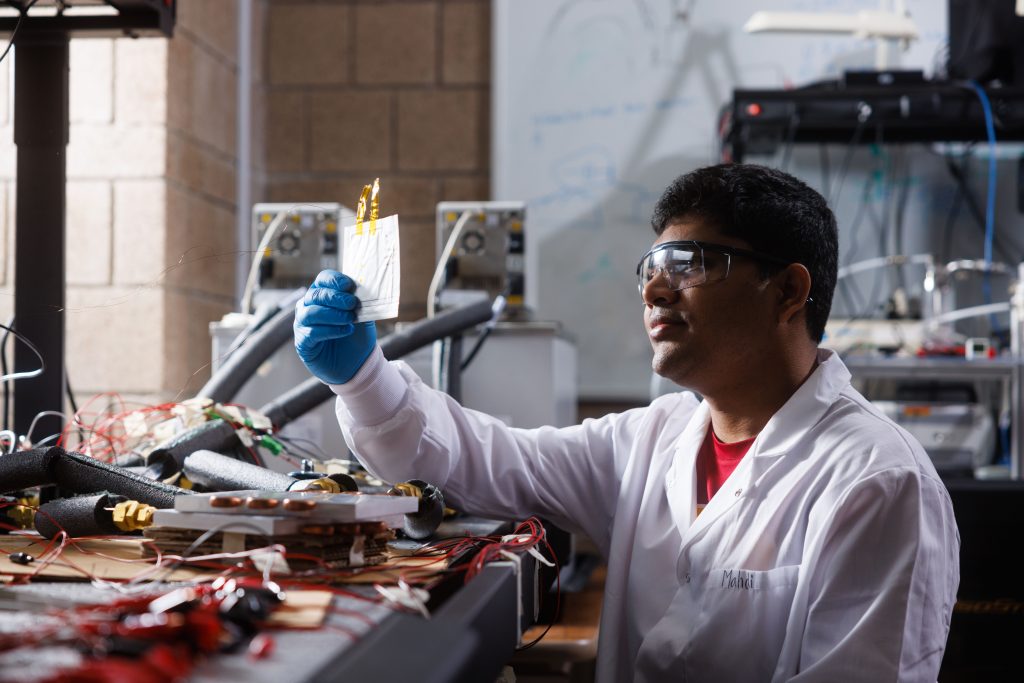Cyclone Engineers aim to advance battery science and technology for Naval applications
Author: Nick Fetty
Author: Nick Fetty

A team of Cyclone Engineers hope to advance the fundamental understanding and capabilities of lithium-based batteries for Naval applications with the help of a new grant from the Office of Naval Research.
Todd Kingston, assistant professor of mechanical engineering (ME), and Cary Pint, Charles Schafer (Battelle) Chair of Engineering and associate professor of ME, are the two Iowa State University researchers involved with this nearly $700,000 project titled “mechanistic determination of thermally induced electrochemical modifications in lithium batteries.” Researchers from the U.S. Naval Research Laboratory and Princeton University will also contribute to this effort.
Specifically, the researchers aim to study how the underlying mechanisms that make batteries function are modified when the battery is exposed to a thermal gradient, or a small temperature difference as little as a few degrees Celsius, across the cell.
Kingston and his group have extensive knowledge and past experience of how thermal phenomena can impact Li-ion battery behavior.
“Thanks to the support from ONR, we have a unique opportunity to unravel some of the most fundamental and pressing thermo-electrochemical questions related to lithium-based batteries, which has applications ranging from defense to transportation to consumer electronics,” said Kingston.
Pint and his lab bring a wealth of chemical and electrochemical battery expertise to the project.
“A lithium-ion battery involves many materials and processes working together in harmony to store energy reliably and safely, similar to how many sections of instruments contribute to the powerful sound of a symphony,” said Pint. “This work will allow us to isolate mechanisms behind how thermal gradients across the battery can modify these processes, ultimately enabling the design of more robust and safer batteries in the future.”
Work on this project started in May 2022 and funding is scheduled to continue through April 2026.